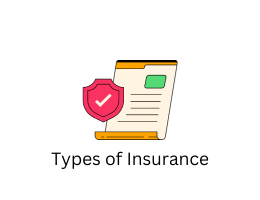
The Functions of Insurance: How it Protects Individuals and Businesses
- By admin --
- Friday, 24 Mar, 2023
Insurance is a contract between an individual (or entity) and an insurance company, in which the individual pays a premium in exchange for protection against specific risks. The primary functions of insurance are:
-
Risk transfer: Insurance allows individuals to transfer the risk of loss to the insurance company. This means that if an individual experiences a covered loss, the insurance company will pay for it, up to the limit of the policy. The individual pays a premium to the insurance company in exchange for this protection.
-
Risk pooling: Insurance companies pool the premiums paid by many individuals to create a fund that can be used to pay for losses. This means that the cost of a loss is spread across many policyholders, which makes insurance more affordable for everyone.
-
Loss prevention: Insurance companies may offer resources and advice to policyholders to help them prevent losses. This can include safety training, risk assessments, and other tools that can help policyholders reduce the likelihood of experiencing a loss.
-
Provision of financial security: Insurance provides individuals with financial security in the event of a covered loss. This can help individuals and families avoid financial hardship, such as bankruptcy or foreclosure, that might otherwise result from an unexpected loss.
-
Facilitation of commerce: Insurance makes it possible for businesses to take risks and invest in new ventures, by protecting them against the financial consequences of unexpected losses. This can help promote economic growth and innovation.
-
Legal compliance: Many jurisdictions require individuals and businesses to carry certain types of insurance, such as auto insurance, workers' compensation insurance, and liability insurance. This ensures that individuals and businesses are able to compensate others for losses or damages they may cause.
-
Peace of mind: Insurance can provide individuals and businesses with peace of mind, knowing that they are protected against unexpected losses. This can help alleviate anxiety and stress, and allow individuals and businesses to focus on their goals.
-
Support for social welfare: Insurance can also support social welfare programs, by providing funding for public programs that address issues such as healthcare, disability, and unemployment. For example, a portion of the premiums paid for unemployment insurance may be used to fund job training programs and other services that help individuals find employment.
-
Protection of assets: Insurance can help protect individuals' and businesses' assets, such as homes, vehicles, and other property. This can be especially important in areas where natural disasters or other unexpected events are common.
-
Promotion of responsible behavior: Insurance can promote responsible behavior by encouraging individuals and businesses to take steps to prevent losses. For example, a homeowner may be more likely to install smoke detectors and fire extinguishers if they know that their insurance premiums will be lower as a result
Overall, the functions of insurance are wide-ranging and diverse, and are an essential component of modern society. Whether protecting against unexpected losses, promoting economic growth and innovation, or supporting social welfare programs, insurance plays a critical role in helping individuals and businesses achieve their goals and navigate the uncertainties of the world around them.





